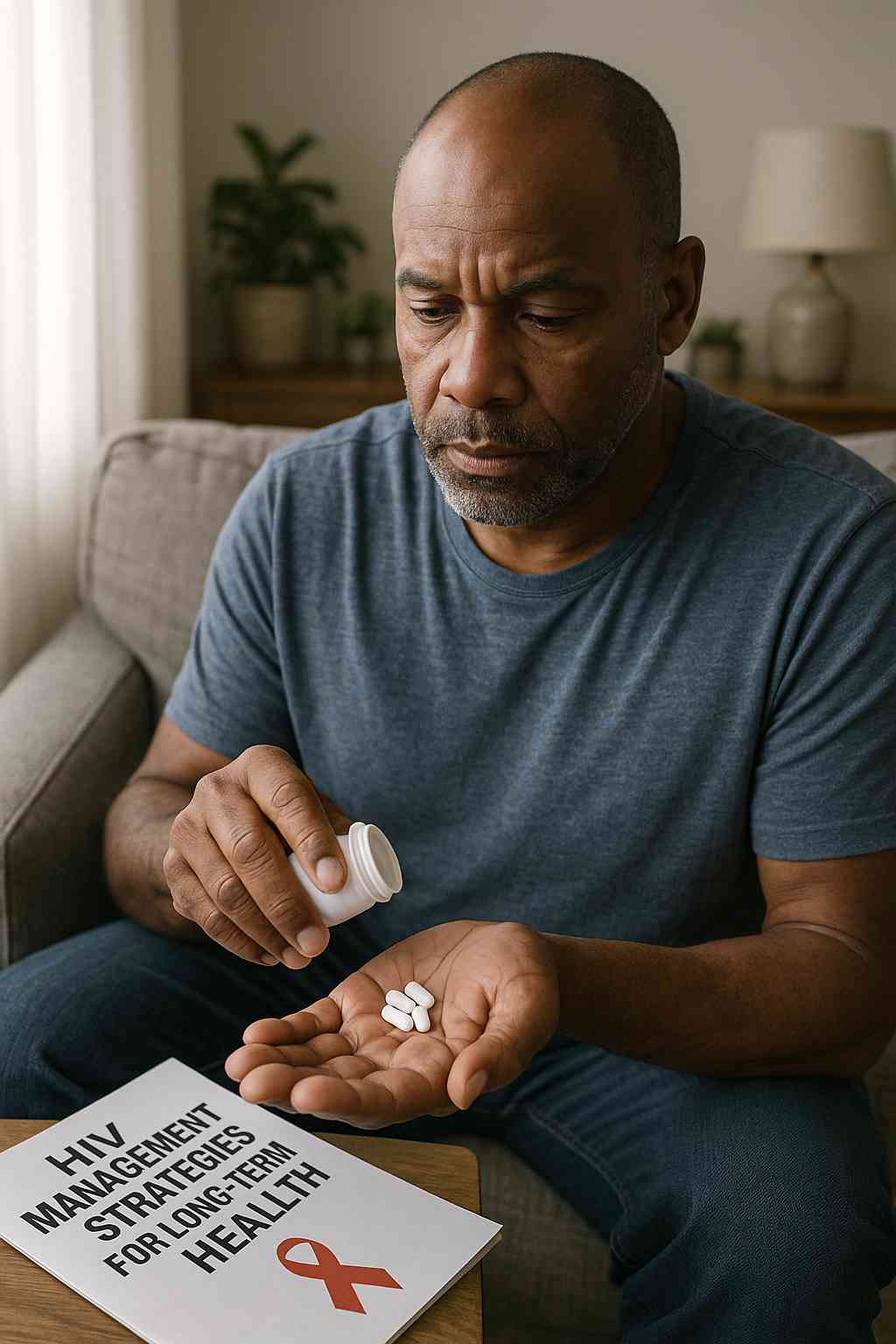Living with HIV doesn’t mean giving up on a healthy, fulfilling life. Thanks to advancements in medical treatments and support systems, effective HIV management can help individuals lead long, vibrant lives. But what exactly does managing HIV involve, and how can you stay ahead of the curve?
Table of Contents
- Understanding HIV Management
- Medication Adherence and Antiretroviral Therapy (ART)
- Nutrition, Exercise, and Mental Health
- Monitoring, Prevention, and Support Systems
- Conclusion
- Frequently Asked Questions
Understanding HIV Management
HIV management is a comprehensive approach that includes medical care, lifestyle changes, and emotional support to keep the virus under control. The primary goal is to reduce the viral load to undetectable levels, preventing progression to AIDS and reducing the risk of transmission. Consistency is key—regular checkups, open communication with healthcare providers, and proactive monitoring all contribute to successful outcomes.
Early diagnosis plays a pivotal role. Individuals diagnosed early and who begin treatment promptly are more likely to maintain stronger immune systems. Effective management not only improves quality of life but also extends life expectancy, bringing it closer to that of individuals without HIV.
Medication Adherence and Antiretroviral Therapy (ART)
At the heart of HIV management is antiretroviral therapy (ART), a regimen of medications that suppress the virus. Skipping doses or inconsistent use can lead to drug resistance and treatment failure. For this reason, strict medication adherence is essential. Set reminders, use pill organizers, or integrate apps to stay on track.
Modern ART has fewer side effects and is more effective than earlier versions. Many individuals take just one pill a day, making it easier to maintain consistency. However, if side effects do occur, speak with a healthcare provider to adjust the treatment. They may recommend alternative medications or supportive therapies to ease discomfort.
For professional guidance, visit Healthcare.pro and connect with a qualified medical professional.
Nutrition, Exercise, and Mental Health
Living well with HIV requires more than just medication. A well-balanced diet boosts immune health and helps the body process medication effectively. Incorporate fresh fruits, vegetables, lean proteins, and whole grains. Avoid excessive sugar, alcohol, and processed foods that can weaken the immune system.
Exercise is another cornerstone of HIV management. Regular physical activity reduces stress, improves cardiovascular health, and combats fatigue. Even light exercises like walking or yoga can make a noticeable difference.
Mental health support is just as crucial. Many people living with HIV experience anxiety or depression. Join support groups, consider therapy, and build a network of trusted friends or family members. Resources like TheBody.com provide helpful mental health tools tailored to HIV-positive individuals.
Monitoring, Prevention, and Support Systems
Ongoing monitoring through blood tests is vital for tracking viral load and CD4 counts. These tests help doctors assess whether treatment is working or needs adjustment. Schedule regular appointments, even when feeling well, to stay ahead of any complications.
Preventing transmission remains a key part of HIV management. Safe sex practices, honest communication with partners, and undetectable=untransmittable (U=U) education are essential components. When the virus is undetectable in the blood, it cannot be transmitted sexually—an empowering fact supported by science.
Support systems enhance resilience. Whether it’s a trusted doctor, peer group, or community center, having allies makes a profound difference. Digital platforms and HIV organizations provide educational materials, virtual meetups, and advocacy opportunities.
For more on public health strategies and digital outreach, visit eHealthcare Solutions.
Conclusion
HIV management is not just about surviving—it’s about thriving. With the right treatment, a balanced lifestyle, and emotional support, people living with HIV can enjoy long, meaningful lives. Take charge of your health journey today and stay informed, connected, and hopeful.
Frequently Asked Questions
What is the most important part of HIV management?
The most critical part is adhering to antiretroviral therapy (ART) to maintain a suppressed viral load.
Can HIV be completely cured?
Currently, there is no cure, but effective treatment can make the virus undetectable and untransmittable.
How often should someone with HIV see their doctor?
Regular checkups every 3–6 months are recommended to monitor health and treatment progress.
What role does diet play in managing HIV?
A nutritious diet supports immune function, improves energy, and helps process medication effectively.
Is it safe to exercise with HIV?
Yes, physical activity is encouraged and can boost overall health and mood for people living with HIV.
This content is not medical advice. For any health issues, always consult a healthcare professional. In an emergency, call 911 or your local emergency services.




